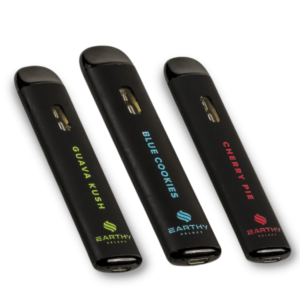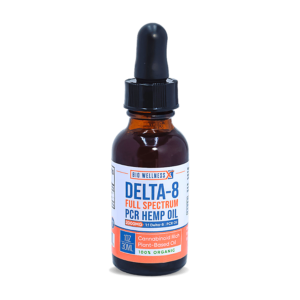key points
Walk into any convenience store or gas station today, and you’ll likely spot colorful packages promising a “legal high” from Delta-8 THC products. The marketing is bold, the claims are enticing, and the accessibility is unprecedented. But behind the flashy displays lies a complex web of safety questions that deserve honest, science-based answers.
Delta-8 THC—a cannabis compound found naturally in the cannabis sativa plant—has exploded onto the wellness scene, creating what many call a legal gray area in the world of cannabis products. Unlike its famous cousin Delta-9 THC, Delta-8 exists in a regulatory limbo that has both advocates and critics asking the same fundamental question: How safe is it really?
The truth, as often happens in science, isn’t black and white. There are legitimate safety concerns worth your attention, and there are overblown fears that don’t match the evidence. Our goal isn’t to create alarm or dismiss valid worries, but to arm you with facts so you can make informed decisions about your health and wellness.
What Exactly Is Delta-8 THC? The Science Made Simple
Think of Delta-8 THC as Delta-9 THC’s quieter sibling. Both are cannabinoids that interact with your endocannabinoid system, but their chemical structure differs by just one tiny detail—the location of a double bond. That small difference, however, creates noticeably different effects.
Here’s where things get interesting: while Delta-8 occurs naturally in hemp plants and the broader cannabis plant, it’s found in incredibly small amounts—we’re talking less than 1% of the plant’s total cannabinoid content. So how do we end up with shelves full of Delta-8 products? The answer lies in chemistry.
Most delta 8 THC products on the market today aren’t extracted directly from plants. Instead, they’re created through a chemical process that converts cannabidiol (CBD) into Delta-8 THC through chemical synthesis. It’s like taking one LEGO block and rearranging its pieces to create a different block entirely—same basic components, different final structure.
When Delta-8 THC reaches your cannabinoid receptors, it produces psychoactive and intoxicating effects, but generally milder than regular cannabis containing Delta-9 THC. Users often describe it as a more clear-headed, less anxious experience. However, “milder” doesn’t mean “risk-free”—a crucial distinction we’ll explore throughout this article.
The Legal Maze: Understanding Delta-8’s Gray Area
The story of Delta-8’s legal status begins with good intentions and unintended consequences. The 2018 Agriculture Improvement Act, commonly known as the Farm Bill, legalized hemp and its derivatives as long as they contained no more than 0.3% Delta-9 THC by dry weight. Congress defined hemp with this specific threshold, aiming to distinguish it from cannabis.
But here’s the twist: while the legislation explicitly addressed Delta-9 THC, it didn’t mention other cannabinoids like Delta-8. This oversight created what experts call a legal gray area—Delta-8 products derived from hemp technically fall under the Farm Bill’s protection, even though they produce psychoactive effects.
The Drug Enforcement Administration has tried to clarify this confusion, stating that synthetically derived tetrahydrocannabinols, including Delta-8 THC created through chemical processes, should be considered controlled substances. Yet enforcement remains inconsistent, and Delta-8 products continue appearing in convenience stores, gas stations, and online retailers across much of the country.
State laws add another layer of complexity. At least 17 states have banned Delta-8 THC entirely, while 7 more have severely restricted its sale. Others allow it with varying degrees of regulation. This patchwork of state laws means that a product legal in one state might land you in legal trouble just miles across a state border.
Perhaps most concerning is the lack of age restrictions in many areas where Delta-8 remains legal. Unlike alcohol or tobacco, these psychoactive substances often sit on convenience store shelves with minimal oversight, creating potential access issues for minors.
Real Safety Concerns vs. Overblown Fears

Here are the real considerations when it comes to Delta-8—framed as things to be aware of rather than reasons to panic.
Quality Standards Vary (So Choose Wisely) Since Delta-8 doesn’t have federal oversight, manufacturers set their own quality standards. This means you’ll find everything from premium products made with pharmaceutical-grade processes to cheaper options that cut corners. The good news? It’s pretty easy to tell the difference when you know what to look for.
Product Labels Sometimes Miss the Mark Some testing has shown that Delta-8 products don’t always contain exactly what their labels claim. This might mean getting a bit more or less Delta-8 than expected, or occasionally finding trace amounts of Delta-9 THC. While not ideal, this is more of a “you get what you pay for” situation than a serious safety crisis.
Kids and Pets Need Protection (Like With Any Adult Product) The main safety incidents reported to poison control centers involve accidental consumption by children or pets. Since many Delta-8 products look like regular gummies or snacks, proper storage is key—just like you’d do with alcohol, medications, or any other adult-only products.
Manufacturing Quality Matters The process of making Delta-8 from CBD involves chemistry, and like any manufacturing process, it can be done well or poorly. Quality manufacturers test their products to ensure purity and remove any processing residuals. Budget operations might skip these steps.
The Fiction: Putting Risks in Perspective
While these concerns are real, it’s important to maintain perspective and separate documented problems from unfounded fears.
Most Incidents Involve Misuse, Not Normal Use The majority of cases involved adults who used products inappropriately—taking far more than recommended doses or combining Delta-8 with other substances. Pediatric patients typically represented accidental exposure situations where children accessed products that weren’t properly stored.
Serious Problems Are Relatively Rare Compared to the thousands of people using Delta-8 products regularly, serious adverse events remain relatively rare. Most poison control center calls result from unintentional exposure rather than proper use of quality products. This doesn’t diminish the importance of these incidents, but it does help contextualize the actual risk levels.
Product vs. Process Problems The challenge lies in distinguishing between problems caused by Delta-8 THC itself versus issues stemming from poor manufacturing, mislabeling, or misuse. It’s similar to evaluating alcohol safety—the substance itself carries inherent risks, but many problems arise from contaminated products or irresponsible consumption.
Who’s Most at Risk? Vulnerable Populations
Certain groups face elevated risks with Delta-8 THC products, and understanding these vulnerabilities is crucial for making informed decisions.
Children represent the highest-risk group for accidental exposure. Unlike traditional cannabis products that often have distinctive smells and appearances, many Delta-8 products look like regular candy, gummies, or beverages. Poison centers report that pediatric patients frequently access these products when they’re left within reach, leading to unintentional intoxication that can require emergency medical care.
Adults seeking alternatives to traditional medicinal cannabis may also face unique risks. Some turn to Delta-8 hoping for therapeutic benefits without realizing that the lack of regulation means they can’t be certain what they’re actually consuming. Unlike established cannabis programs with testing requirements, Delta-8 products may not deliver consistent therapeutic effects.
Individuals taking medications or managing health conditions like anxiety need particular caution. Delta-8 can interact with various medications and may exacerbate certain mental health conditions rather than improve them. The psychoactive substance can also complicate treatment plans or interfere with other therapeutic approaches.
Those with limited cannabis experience may underestimate Delta-8’s effects. While generally milder than Delta-9 THC, Delta-8 can still produce significant intoxication, especially in higher doses or when combined with other substances.
Product Safety: What to Look For
If you’re considering Delta-8 products, knowing how to identify safer options can significantly reduce your risk. Think of it as developing a consumer safety radar in an unregulated market.
Start with the product label. Quality manufacturers provide detailed information about their Delta-8 thc products, including precise cannabinoid content, batch numbers, and manufacturing dates. For example, biowelnessX ensures every product label includes exact milligram amounts, clear dosing instructions, and complete ingredient lists—setting the standard for transparency in an often murky market. Be skeptical of vague labels that don’t specify exact amounts or make unrealistic claims about being “100% safe” or “risk-free.”
Look for third-party testing results. Reputable companies test their final products through independent laboratories and make these results easily accessible. These tests should verify the main compound concentration and screen for potentially harmful chemicals, pesticides, and residual solvents from the chemical synthesis process. Companies like biowelnessX make lab results as easy to find as their product descriptions, posting comprehensive testing data directly on product pages rather than burying them in fine print.
Consider the delivery method carefully. Vape cartridges may pose additional risks due to heating potentially unstable compounds, while edibles can lead to overconsumption due to delayed onset of effects. Each method carries different risk profiles that factor into your safety equation.
Be wary of online marketing that seems too good to be true. Professional companies focus on education and transparency rather than flashy promises. Look for brands that prioritize consumer education, provide detailed ingredient information, and base their claims on scientific research rather than sensational marketing. Red flags include claims about magical health benefits, guarantees of safety, or marketing that seems designed to appeal primarily to minors.
Pay attention to sourcing and manufacturing information. Companies that are transparent about their hemp sources, extraction methods, and quality control processes generally demonstrate higher safety standards than those keeping these details secret. biowelnessX exemplifies this approach by providing detailed information about their hemp sourcing, manufacturing partnerships, and quality control measures—treating transparency not as a marketing tactic, but as a fundamental responsibility to their customers’ wellbeing.
Making Informed Decisions: Your Safety Checklist
Before considering any Delta-8 THC products, ask yourself these crucial questions:
Do you understand your local legal status? State laws change regularly, and what’s legal today might not be tomorrow. Additionally, using Delta-8 products could still result in positive drug tests for THC, potentially affecting employment or other situations requiring drug screening.
Are you prepared for psychoactive effects? Even though Delta-8 is generally milder than Delta-9 THC, it’s still a psychoactive substance that can impair judgment, coordination, and reaction times. Never drive or operate machinery after use.
Do you have a safe environment for use? This includes secure storage away from children and pets, a comfortable setting where you can monitor your response, and no responsibilities requiring clear thinking for several hours.
Are you taking any medications or managing health conditions? Cannabis compounds can interact with various medications and may not be appropriate for certain health conditions. When in doubt, consult with healthcare professionals familiar with cannabis interactions.
Do you have a plan if something goes wrong? Know the signs of overconsumption (severe anxiety, rapid heartbeat, confusion, or paranoia) and have poison centers contact information readily available. Remember that effects can last several hours, and trying to “counteract” them with other substances often makes situations worse.
If you experience severe adverse events, don’t hesitate to contact poison control centers or seek emergency medical care. Healthcare providers need accurate information about what you consumed to provide appropriate treatment.
The Bigger Picture: Public Health Considerations
The Delta-8 phenomenon reflects broader questions about how we approach cannabis regulation in a rapidly evolving landscape. Unlike established medical cannabis programs with robust testing and quality control requirements, the Delta-8 market operates with minimal oversight, creating a natural experiment in unregulated psychoactive substance distribution.
From a public health perspective, this situation presents both opportunities and challenges. On one hand, increased legal access to cannabis compounds allows researchers to study their effects more openly and gives consumers alternatives to traditional cannabis products. On the other hand, the lack of standardization and quality control creates unnecessary risks that proper regulation could address.
The FDA continues monitoring adverse event reports and working with state partners to address the most concerning aspects of the Delta-8 market. However, comprehensive federal guidance remains limited, leaving consumers, manufacturers, and healthcare providers to navigate uncertainty.
Comparing safety profiles across different cannabis products reveals interesting patterns. CBD products, which are non-psychoactive and more thoroughly researched, generally show better safety profiles than Delta-8 THC products. Traditional Delta-9 THC products from regulated markets typically have more consistent quality control than synthesized Delta-8, even though they’re more potent.
The hemp products industry broadly would benefit from clearer guidelines that balance innovation with consumer safety. This includes establishing manufacturing standards, requiring testing protocols, implementing proper labeling requirements, and creating appropriate age restrictions.
Final Thoughts: Is Delta-8 Safe – Facts Over Fear
After examining the evidence from multiple angles, here’s what we can conclude about Delta-8 safety concerns:
The legitimate concerns are real but manageable. Quality control issues, potential contamination from chemical synthesis, and inconsistent labeling represent genuine safety challenges that responsible regulation could address. These aren’t theoretical risks—they’re documented problems affecting real people.
The overblown fears often stem from unfamiliarity rather than evidence. Delta-8 THC isn’t inherently more dangerous than other cannabis compounds when produced and used properly. Most adverse events result from contaminated products, excessive doses, or accidental exposure rather than the compound itself.
Individual responsibility remains paramount. In an unregulated market, consumers must become informed advocates for their own safety. This means researching products carefully, starting with low doses, storing products securely, and recognizing when to seek help.
Better regulation would benefit everyone. The current legal gray area serves no one well—consumers face unnecessary risks, legitimate businesses struggle with compliance uncertainty, and healthcare providers lack clear guidance for patient care.
The goal isn’t to create fear around Delta-8 THC products, but to ensure you have the facts needed for safer choices. Whether the safety concerns surrounding Delta-8 are fact or fiction depends largely on the specific product, the manufacturer’s practices, and how responsibly it’s used.
As research continues and regulations evolve, our understanding of Delta-8 safety will undoubtedly improve. Until then, approaching these products with informed caution—rather than either blind fear or reckless abandon—represents the most reasonable path forward.
Remember, every substance that affects your body carries some level of risk. The key is understanding those risks, taking appropriate precautions, and making decisions that align with your personal health goals and risk tolerance. When in doubt, consulting with healthcare professionals familiar with cannabis can provide valuable guidance tailored to your specific situation.
The cannabis world will keep changing, but your commitment to making smart choices will always be your best protection, no matter what new compounds or products show up in this fast-moving field.
Bonus: Quick Reference Safety Checklist
Before You Buy Delta 8 Products:
✅ Check your local state laws (they change often!)
✅ Look for third-party lab testing results
✅ Verify the company provides clear contact information
✅ Read the product label carefully for dosing information
Red Flags to Avoid:
❌ Products sold without any lab testing
❌ Extremely cheap prices (quality costs money)
❌ Claims about curing diseases or being “completely safe”
❌ No clear ingredient list or company information
Bookmark this checklist and share it with anyone considering delta 8 products. Knowledge is your best safety tool.

Legal Disclaimer:
By reading this information presented, you agree to release the author of any liability that comes from using this data. This post contains no legal advice. Claims about cannabinoids have not yet been approved by the FDA. This article was written in 2025, cannabis laws and regulations are subject to change. Read the full legal disclaimer here.
References:
- https://www.sciencedirect.com/science/article/abs/pii/002432059500194B
- https://pubmed.ncbi.nlm.nih.gov/7776837
- https://www.canada.ca/en/health-canada/services/drugs-medication/cannabis/information-medical-practitioners/information-health-care-professionals-cannabis-cannabinoids.html
- https://www.medicalnewstoday.com/articles/how-long-for-edibles-to-kick-in
- https://www.eatingwell.com/what-happens-when-you-eat-edibles-8779394
- https://www.self.com/story/cannabis-edibles
- https://www.psychologytoday.com/us/blog/healing-from-addiction/202201/4-things-to-know-about-delta-8-thc-the-new-cannabis-drug
- https://www.psu.edu/news/university-health-services/story/uhs-health-promotion-and-wellness-caution-students-delta-8-thc
- https://pubmed.ncbi.nlm.nih.gov/34980292
- https://jcannabisresearch.biomedcentral.com/articles/10.1186/s42238-021-00115-8
- https://bmcmedicine.biomedcentral.com
- https://www.bmj.com
- FDA: Regulation Cannabis
- NIH.gov: Cannabis Marijuana and Cannabinoids
- https://systematicreviewsjournal.biomedcentral.com
- National Academies
- https://proverdelabs.com/w/we-believe-in-unicorns
- https://www.fda.gov/consumers/consumer-updates/5-things-know-about-delta-8-tetrahydrocannabinol-delta-8-thc
- https://www.wilsonelser.com/publications/delta-9-thc-products-from-hemp-are-a-risk-not-worth-taking
- https://www.wthr.com/article/news/investigations/13-investigates/citing-new-test-results-indiana-prosecutors-threaten-criminal-charges-if-businesses-dont-stop-selling-delta-8-13-investigates/531-3b6132a2-b77d-4ef2-b096-e07cb72b2310
- https://www.astmcannabis.org/wp-content/uploads/2021/11/ASMT-Delta-White-Paper-Final.pdf
- https://www.stingercompliance.com/blog/selling-delta-8-thc-products-risks-for-minors
- https://www.tandfonline.com/doi/full/10.1080/01612840.2024.2372239
- https://inhalemd.com/blog/will-using-marijuana-before-bed-give-you-nightmares-or-vivid-dreams
- https://jcsm.aasm.org/doi/10.5664/jcsm.10428
- https://pubmed.ncbi.nlm.nih.gov/21167865
- https://www.med.upenn.edu/cbti/assets/user-content/documents/The%20effects%20of%20cannabinoid%20administration%20on%20sleep-a%20systematic.pdf
- https://pubmed.ncbi.nlm.nih.gov/31403110
- https://www.frontiersin.org/articles/10.3389/fpsyt.2013.00001/full
- https://onlinelibrary.wiley.com/doi/full/10.1111/j.1755-5949.2008.00071.x
- https://www.med.upenn.edu/cbti/assets/user-content/documents/s11920-017-0775-9.pdf
- https://pubmed.ncbi.nlm.nih.gov/7776837
- https://www.med.upenn.edu/cbti/assets/user-content/documents/Cannabis%2C%20Cannabinoids%2C%20and%20Sleep-a%20Review.pdf
- https://doi.org/10.1016/j.jpain.2013.08.007
- https://www.sleepfoundation.org/mental-health/anxiety-and-sleep
- https://doi.org/10.7812/TPP/18-041
- https://doi.org/10.1111/j.1476-5381.2011.01238.x
- https://www.scientificamerican.com/article/some-of-the-parts-is-marijuana-rsquo-s-ldquo-entourage-effect-rdquo-scientifically-valid
- https://mypaincenter.com/blogs/news/thc-and-meditation-guide-to-finding-inner-peace-with-cannabis
- Babalonis, S., Raup-Konsavage, W. M., Akpunonu, P. D., Balla, A., & Vrana, K. E. (2021). Δ8-THC: Legal Status, Widespread Availability, and Safety Concerns. Cannabis and Cannabinoid Research, 6(5), 362–365. https://doi.org/10.1089/can.2021.0097
- Griffin, G., Williams, S., Aung, M. M., Razdan, R. K., Martin, B. R., & Abood, M. E. (2001). Separation of cannabinoid receptor affinity and efficacy in delta-8-tetrahydrocannabinol side-chain analogues. British Journal of Pharmacology, 132(2), 525–535. https://doi.org/10.1038/sj.bjp.0703827
- Dakwar, E., & Levin, F. R. (2009). The Emerging Role of Meditation in Addressing Psychiatric Illness, with a Focus on Substance Use Disorders. Harvard Review of Psychiatry, 17(4), 254–267. https://doi.org/10.1080/10673220903149135
- https://pmc.ncbi.nlm.nih.gov/articles/PMC7531079
- https://hollyweedhemp.com/edible-dosage-chart-by-weight
- https://recovered.org/marijuana/microdosing-thc
- https://link.springer.com/article/10.1186/s42238-021-00115-8
- https://onlinelibrary.wiley.com/doi/full/10.1111/add.16142
- https://ajph.aphapublications.org/doi/abs/10.2105/AJPH.2021.306499?journalCode=ajph
- https://www.liebertpub.com/doi/abs/10.1089/can.2021.0124
FAQs About Delta-8 THC and Wellness
Hemp cultivation for Delta-8 production generally requires less water and pesticides than traditional marijuana, offering a more eco-friendly giggle to your green routine. Less impact, more mirth, Mother Earth rejoices.
Delta-8 THC may waltz with your meds, so consult healthcare maestros before adding a new partner to your pharmaceutical tango. Interaction effects can range from a mere shimmy to a full-blown boogie.
Delta-8 products should be stored in a cool, dark place to preserve their quality. Avoid heat and direct sunlight to maintain potency, lest your Delta-8 becomes as effective as a placebo lollipop.
Delta-8 THC may appear on drug tests, mimicking the detectability of its more notorious cousin, Delta-9 THC. This could lead to awkward explanations during a routine employment screening. Proceed with caution.
Navigating the intricate tapestry of international cannabis regulations can resemble a high-stakes game of “Tetrahydrocannabinolic Twister,” with each country presenting a unique contortion of legal postures regarding Delta-8 THC possession and travel.










